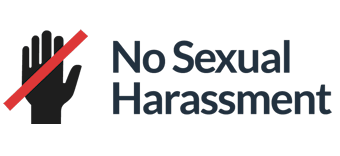
Quid pro quo sexual harassment is perhaps the most well known of all the types of sexual harassment. Quid pro quo means “this for that” and this type of sexual harassment refers to a work situation in which someone with power within a company conditions a job or job benefit on the worker’s submission to sexual/romantic advances. It can also include a situation in which the person in power directs negative treatment toward the worker when the worker rejects such sexual/romantic advances. At trial in California, the jury will likely receive some form of the following jury instruction from California’s Approved Civil Jury Instructions (“CACI”), number 2520:
Quid Pro Quo Sexual Harassment—Essential Factual Elements
Plaintiff (“Worker”) claims that Defendant (“Company”), subjected her to sexual harassment. To establish her claim, Worker must prove all of the following:
1. Worker was an employee or independent contractor with Company;
2. That Harasser made unwanted sexual advances toward Worker or engaged in other unwanted verbal or physical conduct of a sexual nature toward Worker;
3. That job benefits were conditioned, by words or conduct, on Worker’s acceptance of Harasser’s sexual advances or conduct;
or
That employment decisions affecting Worker were made based on Worker’s acceptance or rejection of Harasser’s sexual advances or conduct;
4. That at the time of the conduct, Harasser was a supervisor or agent for Company;
5. That Worker was harmed; and
6. That the conduct of Company, was a substantial factor in causing Worker’s harm.
If the jury finds that each of these requirements are proven by a “preponderance of the evidence” (we will provide more on this concept in future posts), the jury should reach a verdict in favor of the Worker. Check back here in the future for more on legal concepts relating to sexual harassment and employment law.
Quid pro quo sexual harassment is not the only type of sexual harassment. In future posts we will distinguish quid pro quo sexual harassment from hostile work environment harassment. Check back here frequently for more on legal concepts relating to sexual harassment and employment law.
Disclaimer: The above is for informational purposes only. Because the law is constantly changing and being refined in the courts, the above statements are based on California law at the time of publication, and should not be relied upon in court. Every litigant and attorney is strongly encouraged to conduct their own independent research.

Quid Pro Quo Sexual Harassment
/in Sexual Harassment & Discrimination /by Jason OliverQuid pro quo sexual harassment is perhaps the most well known of all the types of sexual harassment. Quid pro quo means “this for that” and this type of sexual harassment refers to a work situation in which someone with power within a company conditions a job or job benefit on the worker’s submission to sexual/romantic advances. It can also include a situation in which the person in power directs negative treatment toward the worker when the worker rejects such sexual/romantic advances. At trial in California, the jury will likely receive some form of the following jury instruction from California’s Approved Civil Jury Instructions (“CACI”), number 2520:
Quid Pro Quo Sexual Harassment—Essential Factual Elements
Plaintiff (“Worker”) claims that Defendant (“Company”), subjected her to sexual harassment. To establish her claim, Worker must prove all of the following:
1. Worker was an employee or independent contractor with Company;
2. That Harasser made unwanted sexual advances toward Worker or engaged in other unwanted verbal or physical conduct of a sexual nature toward Worker;
3. That job benefits were conditioned, by words or conduct, on Worker’s acceptance of Harasser’s sexual advances or conduct;
or
That employment decisions affecting Worker were made based on Worker’s acceptance or rejection of Harasser’s sexual advances or conduct;
4. That at the time of the conduct, Harasser was a supervisor or agent for Company;
5. That Worker was harmed; and
6. That the conduct of Company, was a substantial factor in causing Worker’s harm.
If the jury finds that each of these requirements are proven by a “preponderance of the evidence” (we will provide more on this concept in future posts), the jury should reach a verdict in favor of the Worker. Check back here in the future for more on legal concepts relating to sexual harassment and employment law.
Quid pro quo sexual harassment is not the only type of sexual harassment. In future posts we will distinguish quid pro quo sexual harassment from hostile work environment harassment. Check back here frequently for more on legal concepts relating to sexual harassment and employment law.
Disclaimer: The above is for informational purposes only. Because the law is constantly changing and being refined in the courts, the above statements are based on California law at the time of publication, and should not be relied upon in court. Every litigant and attorney is strongly encouraged to conduct their own independent research.
New Employment Laws
/in Disability Discrimination, Pregnancy Leave & Discrimination, Racial Discrimination & Harassment, Sexual Harassment & Discrimination /by Jason OliverNew Employment Laws in California
New Employment Laws Provide Help for Unpaid Interns
2015 brought new employment laws to California. Notably, the legislature amended the California Fair Employment and Housing Act to extend workplace protections against discrimination and harassment to unpaid interns. California’s new law now ensures that unpaid interns are protected against unlawful harassment and discrimination in the workplace as of January 1, 2015. This includes protection against harassment and discrimination based on sex, gender, sexual orientation, gender identity, race, religion, disability, and other protected categories. The new employment law provides that harassment or discrimination against any person in the selection, termination, training, or other terms or treatment of that person in an “an unpaid internship, or another limited duration program to provide unpaid work experience for that person” is “unlawful” if based on one of the identified protected bases under existing law. Prior to this law, unpaid interns apparently had no civil right to be free from such mistreatment while working.
Additionally, FEHA was amended to expand protections against discrimination based on national origin.
New Employment Laws Provide Paid Leave to Sick Workers
A new California law requires employers to provide full time employees, as well as some part-time and temporary employees, at least three paid sick days each year.
Check back here for future updates on new employment laws.
Sexual Harassment Case of Moran v. Shah
/in Recent Victories /by Jason Oliver2013: In Moran v. Shah, on August 5, a twelve person jury in Palm Springs found Palm Desert real estate developer, Suresh Shah, guilty of sexually harassing Karen Moran, Shah’s former leasing agent and mall manager at the Town Center Mall in Yucca Valley.
The jury awarded plaintiff $1.25 million ($1,000,000 in punitive damages against Mr. Shah and $250,000 in compensatory damages to plaintiff). Ms. Moran alleged Mr. Shah made unwanted requests for sexual favors in exchange for a raise in pay, that he sent her and other female employees numerous sexually explicit emails, and that he touched her inappropriately and directed vulgar, gender based language at her and other women employees over a period of many months.
The jury also found Mr. Shah acted with malice or oppression, which was the basis for the punitive damages award. Ms. Moran was represented by Patrick McNicholas (lead), John Dalton (second chair), and Jason Oliver.
Wherry v. Century 21 Award and Greg Britton
/in Recent Victories /by Jason Oliver2011: In Wherry v. Century 21 Award and Greg Britton, on February 23, we succeeded in our fight against Century 21 and the California Association of REALTORS®.
To review the Court of Appeal’s published decision in Wherry/Traieh v. Award, Inc., finding the CAR Independent Contractor Agreement (ICA) illegal and unenforceable when used to attempt to force people into an unfair arbitration system, click here.
UPDATE : On April 4, 2011, the California Supreme Court denied attempts to overturn the Court of Appeal’s decision filed by Century 21 Award, and the California Association of REALTORS®, denying their petition for review and depublication.
Court of Appeals finds El Torito’s Arbitration Clause Illegal
/in Sexual Harassment & Discrimination /by Jason OliverOn August 15, 2006, in a sexual harassment case we recently prosecuted against El Torito and Acapulco Restaurants on behalf of three women, the Second District Court of Appeals agreed with our position that an arbitration agreement being used to deprive employees of their right to jury trial contained illegal provisions. In its unpublished opinion in this sexual harassment case against the two companies, the Court of Appeals ordered the illegal clauses stricken and severed from the agreement, but enforced the remainder of the agreement.
If you have questions about a case that you believe may involve a claim of sexual harassment, discrimination, wrongful termination, whistleblower law, or punitive damages, click here for a Free Legal Consultation.
Marcisz v. Ultrastar
/in Recent Victories /by Jason Oliver2005: In Marcisz v. Ultrastar – Before the Suresh Shah sexual harassment case, in a sexual harassment case against UltraStar Cinemas (Movie Theater Entertainment Group) a San Diego jury awarded our clients $6,000,000 (six million dollars) in punitive damages in addition to $850,000 in compensatory damages. UltraStar had knowingly allowed two of its male managers, ages 32 and 22 respectively, to sexually harass the teenage plaintiffs. Some of the harassment included assault, the brandishing of knives, and the use of police restraint holds on the teenage girls. At the time of the harassment, the four plaintiffs were minimum wage workers between the ages of 16 and 17 in their first jobs. After the verdicts were rendered, the trial court ordered a new trial, on the grounds that the awards were too much money.
April 30, 2008: the California Court of Appeal reversed the trial court’s decision taking away the emotional distress damages verdict in favor of four teenager girls, reinstating the verdicts as to these amounts. To review the Court of Appeal’s (unpublished) decision overturning the trial court’s decision, in part, click here. The case was also the subject of the very first PBS NOW television special, which takes an in-depth look at issues facing women in the workplace.
Gober v. Ralphs Grocery Company Sexual Harassment Case
/in Recent Victories /by Jason Oliver2002: Before the Ultrastar case, a San Diego jury rendered a $30.6 Million to six clients in another sexual harassment case, Gober v. Ralphs Grocery Company.
The women’s store director had harassed them for years, while their employer, Ralphs Grocery Company, a subsidiary of grocery giant Kroger, knowingly allowed the sexual harassment to continue. The $30 million sexual harassment jury verdict was the focus of nationwide media attention, resulting in a featured segment on ABC Primetime and covered in a Los Angeles Times article on workplace sexual harassment.
The case was appealed by both sides, resulting in a published opinion by the Court of Appeal. After Ralphs petitioned to the California Supreme Court, the Court of Appeal issued a second opinion.
Click here to read the Fourth District Court of Appeal, Division One’s first opinion in Gober v. Ralphs Grocery Company regarding sexual harassment and punitive damages and the order modifying the decision (in Adobe portable document format–for a free copy of Adobe Reader, visit Adobe).
Click here to read the Court of Appeal’s second opinion dealing with motions for new trial and JNOV, sexual harassment and punitive damages and the order modifying it.
Click here to read the most recent opinion dealing with punitive damages in sexual harassment cases, review of punitive damages awards by way of motion for JNOV and motions for new trial.